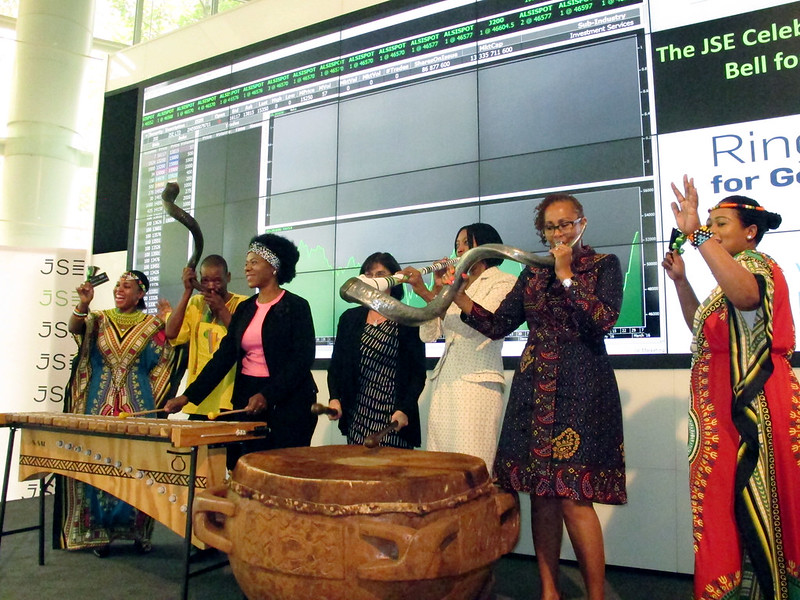My solidity is renewed by a thousand voices of women who stand against patriarchy, by women who come together with one voice and collectively denounce patriarchal power structures that dominate their societies.
South Africa is one of the countries in the world with the highest statistics of gender-based violence. Gender-based violence is violence against women based on women’s subordinate status in society. It’s an act by men that inflict physical, sexual, and psychological harm on women and girls because of their gender. Gender-based violence is a profound and widespread problem in South Africa. A man kills a woman every 3 hours, a child is raped every 3 minutes, and every 29 seconds a woman is raped in South Africa. Precise statistics are difficult to acquire for many reasons, which includes the fact that some incidents of gender-based violence cases are not reported.
GBV occurs because of normative roles and unequal power relationships between genders in society. These normative roles shape the perception and experience of sexual violence in communities. Men are more often the perpetrators, women, and children the victims. According to research in the year 2019/2020, 2695 women were murdered in South Africa; these statistics were five times higher than the global average. The numbers could be even higher, given the fact that rape and domestic abuse are significantly underreported. The covid -19 pandemic has intensified the situation of women in South Africa considering the national lockdown that was announced to start on the 27th of March 2020.
Many women were locked in their homes with the men that abuse them. The reports of GBV went up drastically. The South African police services received a thousand calls from women who needed to be placed in safety institutions due to the violence and trauma they receive at home. The occurrences happened when the South African government announced the national lockdown, in March 2020. South Africa’s GBV worsened due to lockdown measures, women were trapped in with their abusers. Many women are faced with such trajectories in their local communities, and even when women are not in imminent danger, their lives are designed to avoid violence. Women in South Africa do not feel safe in their societies. They fear exercising alone in parks, they avoid underground parking lots. They fear walking in their own neighborhoods at night, even if it is just to get a loaf of bread from the store across the street. The communities in the regions of South Africa have become enclaves of cruelty, women and girls are trapped in these societies as they continue to be the victims of rape and violence. Some women continue to stay in abusive relationships because of societal stereotypes.
These harmful gender stereotypes embedded in social and cultural norms, which suggest that women must always submit to men or that a man who beats his wife does so because he loves her, have fuelled the rise in violence against women, especially in Black societies. Other women who were victims of these abuses publicly spoke out, saying that the reason they continue to stay in abusive relationships is poverty and unemployment. They are forced to remain with their abusive partners or husbands, as they are the sole providers in the household. Women and girls who dare to report violence and abuse risk social rejection for failing to conform to gender roles and when they do speak out, their complaints are not taken seriously by authorities. Covid-19 has magnified existing structural problems such as poverty, inequality, crime, high unemployment, and systematic criminal justice failures by the authorities.
Femicide in South Africa is more than the world average, and the country has one of the highest murder rates in the world. Over the years, the country has been brought to a standstill because of the high rates of gender-based violence and femicide. One of the renowned cases that shook the country in 2019 was the brutal murder of Uyinene Mrwetyana, a Cape Town University student. Uyinene Mrwetyana was raped and killed in the Clareinch post office in Claremont, Cape Town, on 24 August 2019. Her murder sparked national outrage and brought about protests in 2019, calling for violence to end. SA post office employee Luyanda Botha confessed to killing her and was handed three life terms in jail for her rape and murder. Another femicide case out of many that drew attention and became prominent was the inhuman murder of 28-year-old Tshegofatso Pule. She went missing on 04 June 2020 and was found four days later, stabbed, and hanging from a tree in Johannesburg while eight months pregnant. Ms. Pule’s death distressed many, her murder was widely condemned and inspired the #JusticeForTshego on Twitter. In response, President Cyril Ramaphosa released a statement denouncing gender-based violence. He introduced three bills to parliament aimed at bringing violence against women and other vulnerable people to end. He has implemented a dedicated budget towards eradicating GBV in the country and fight against these crimes.
While these measures are promising, GBV is still ongoing in South African communities, women and girls continue to suffer and are subjected to gender-based violence. More voices are still needed, voices that will speak against femicide and GBV. We haven’t had enough protests and campaigns that will truly help many marginalized women. Women should be ensured that they are not prisoners of circumstance, they should be empowered to take their rightful place in all sectors of society, to recoup their safety, dignity, respect and rise to their full potential.

